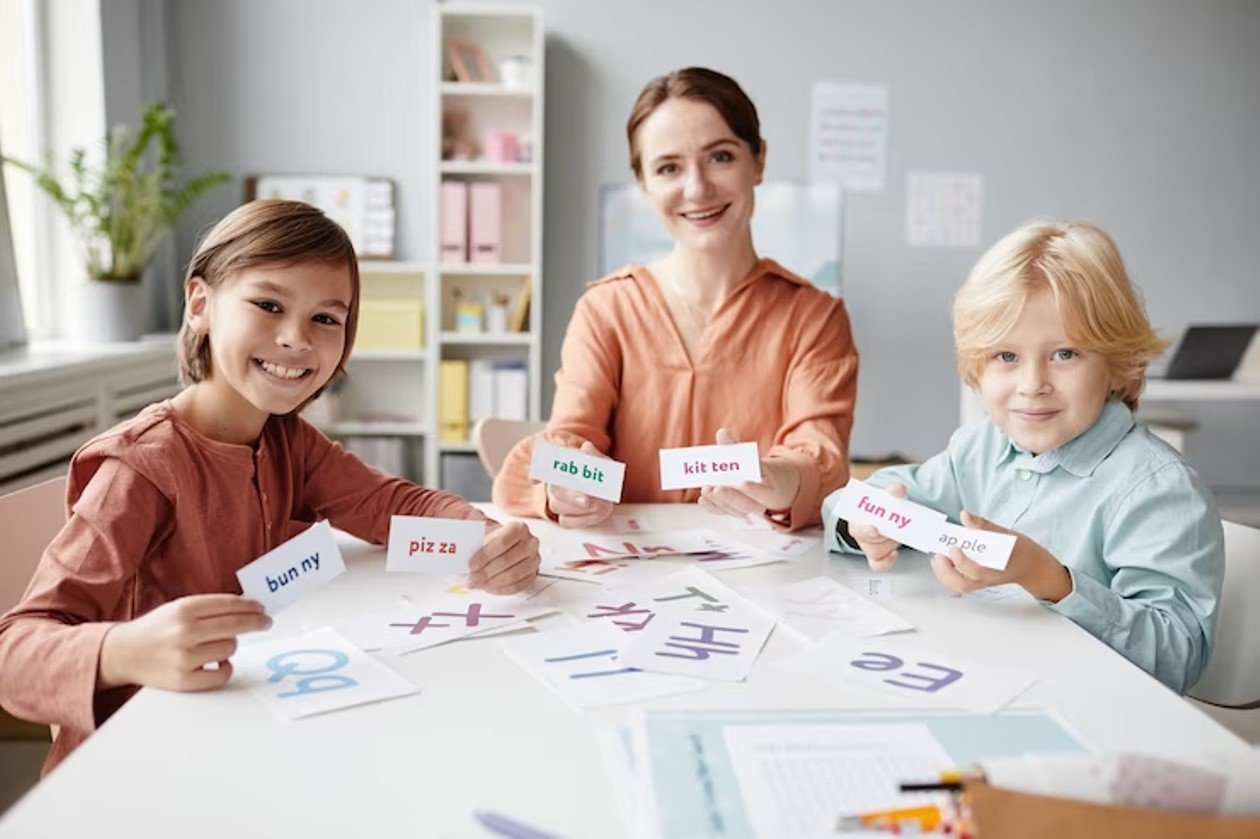5 Strategies for Early Learning Education

Early childhood is a critical period for a child’s development, laying the foundation for lifelong learning. As parents and educators, understanding effective strategies for early learning education is paramount. Let’s explore five key strategies that can significantly impact a child’s early learning journey.
Introduction
Early learning education encompasses the formative years of a child’s life, typically from birth to eight years old. Children undergo significant cognitive, social, and emotional development during this period. Investing in quality early learning experiences can shape a child’s future success in education and beyond.
Understanding Early Learning Development
Cognitive Development
The early years are marked by rapid cognitive growth. Children start to grasp language, develop problem-solving skills, and enhance their memory. Stimulating activities and age-appropriate challenges play a crucial role in nurturing cognitive abilities.
Social and Emotional Development
Building strong social and emotional foundations is equally vital. Early learning environments should encourage positive interactions, emotional regulation, and the development of empathy. These skills form the basis for healthy relationships later in life.
Motor Skills Development
Physical activities that promote gross and fine motor skills are integral to early learning. From crawling to handling small objects, these activities contribute to a child’s overall physical development and coordination.
Read More: Virtual Tours and 3D Models for Education: How to Bring Learning to Life
The Role of Parents in Early Learning
Creating a Learning Environment at Home
Parents play a central role in a child’s early learning journey. Establishing a conducive learning environment at home involves setting up designated spaces for play, exploration, and quiet activities. This creates a positive association with learning.
Interactive Activities for Parents and Children
Engaging in interactive activities fosters bonding and enhances learning. Reading together, engaging in creative projects, and participating in educational games create enjoyable learning experiences for both parents and children.
Choosing the Right Educational Toys
Criteria for Selecting Educational Toys
Educational toys should align with a child’s developmental stage and interests. Look for toys that encourage problem-solving, creativity, and imagination. Consider age-appropriate complexity to ensure engagement without frustration.
Examples of Effective Educational Toys
Building blocks, puzzles, and interactive games are excellent choices. These toys stimulate cognitive development and provide opportunities for exploration and experimentation.
Interactive Learning Through Technology
Pros and Cons of Screen Time for Early Learners
While technology can offer interactive learning experiences, moderation is key. Excessive screen time may have adverse effects. Balancing screen-based activities with hands-on experiences is crucial for holistic development.
Educational Apps and Games
Selecting educational apps and games designed for early learners can supplement traditional learning methods. Look for age-appropriate content that aligns with educational goals.
Importance of Outdoor Activities
Benefits of Outdoor Play for Early Learning
Outdoor activities contribute to physical health, sensory development, and enhanced creativity. Exposure to nature promotes curiosity and a sense of wonder, fostering a holistic approach to learning.
Outdoor Activities for Cognitive and Physical Development
Exploration, nature walks, and simple outdoor games contribute to cognitive and physical development. These activities also provide opportunities for socialization and teamwork.
Early Learning Programs and Schools
Evaluating Early Learning Programs
When considering early learning programs or schools, evaluate factors such as curriculum, teacher qualifications, and the overall learning environment. A program that aligns with your child’s learning style and interests is crucial.
Choosing the Right Early Learning School
Look for schools that prioritize a balance between structured learning and play. A nurturing environment with experienced educators fosters a positive early learning experience.
Implementing Creative Arts in Early Education
Role of Art and Music in Early Learning
Creative arts, including drawing, painting, and music, contribute to a child’s emotional expression and cognitive development. These activities enhance sensory perception and promote self-expression.
Creative Activities for Young Children
Simple art projects, music exploration, and storytelling sessions encourage creativity. These activities not only stimulate imagination but also build confidence and communication skills.
Individualized Learning Approaches
Recognizing and Catering to Different Learning Styles
Each child is unique, with individual learning preferences and strengths. Recognizing and accommodating these differences through tailored learning approaches ensure that every child receives effective education.
Personalized Learning Plans
Educators can create personalized learning plans that cater to a child’s specific needs and interests. This approach fosters a love for learning and allows children to progress at their own pace.
The Impact of Nutrition on Early Learning
Nutrition’s Role in Cognitive Development
Proper nutrition is fundamental to cognitive development. A well-balanced diet rich in essential nutrients supports brain function, concentration, and overall mental well-being.
Healthy Eating Habits for Early Learners
Encouraging healthy eating habits from a young age sets the foundation for a lifetime of well-being. Provide a variety of nutritious foods and involve children in meal preparation to instill positive habits.
Collaboration Between Parents and Educators
Regular Communication and Updates
Open communication between parents and educators is essential for a child’s holistic development. Regular updates on a child’s progress, challenges, and achievements foster a collaborative approach to learning.
Parent-Teacher Conferences
Scheduled conferences provide opportunities for in-depth discussions about a child’s development. Sharing insights and observations strengthens the partnership between parents and educators.
Challenges in Early Learning Education
Addressing Common Obstacles
Challenges in early learning may include attention issues, socialization difficulties, or developmental delays. Addressing these challenges early on with a supportive approach is crucial for overcoming obstacles.
Strategies for Overcoming Challenges
Collaborative problem-solving, early intervention, and seeking professional guidance when needed contribute to overcoming challenges. A proactive approach ensures that each child receives the support required for success.
Measuring Success in Early Learning
Alternative Assessment Methods
Traditional assessments may not capture the full scope of a child’s abilities. Incorporating alternative assessment methods, such as project-based assessments and portfolios, provides a more comprehensive view of a child’s progress.
Celebrating Milestones and Progress
Recognizing and celebrating small milestones fosters a positive learning environment. Acknowledging a child’s efforts and achievements boosts confidence and enthusiasm for learning.
The Future of Early Learning Education
Trends and Innovations
As education continually evolves, early learning education is not exempt from innovation. Stay informed about emerging trends, such as personalized learning platforms and augmented reality, to provide cutting-edge experiences for young learners.
Continuous Learning and Adaptation
Flexibility and adaptability are crucial in the ever-changing landscape of education. Continuous learning, both for educators and parents, ensures that early learning strategies remain effective and relevant.
Read More: The Transformative Impact of Learning Tools on Students
Conclusion
Investing in early learning education is an investment in a child’s future. By implementing these strategies, parents and educators can create a nurturing and stimulating environment that sets the stage for lifelong learning.
FAQs
What age range does early learning education cover?
Early learning education typically covers the period from birth to eight years old.
How can parents contribute to early learning at home?
Parents can create a conducive learning environment, engage in interactive activities, and choose educational toys thoughtfully.
Are there specific challenges in early learning education?
Challenges may include addressing attention issues, socialization difficulties, and developmental delays.
Why is outdoor play important for early learners?
Outdoor play contributes to physical health, sensory development, and enhanced creativity.
What role does nutrition play in early learning?
Proper nutrition is fundamental to cognitive development, supporting brain function and concentration.







